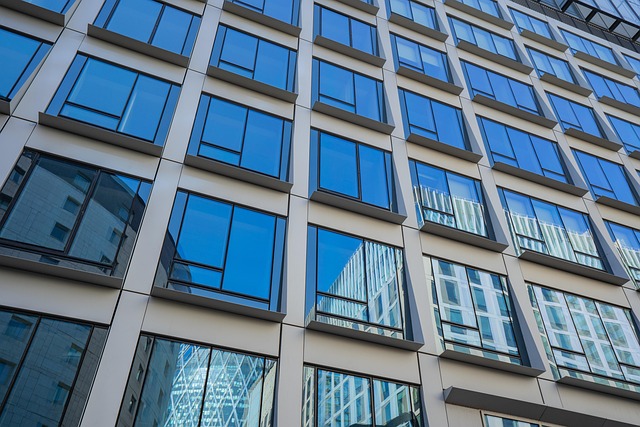Corrosion poses a significant challenge for commercial gas hot water heaters in high-capacity institutional settings like restaurants and hotels, accelerated by moisture, temperature fluctuations, and mineral-rich water. Stainless steel is the superior material choice due to its corrosion resistance, ideal for challenging industrial environments. Modern tankless gas systems with condensing technology offer enhanced energy efficiency through stainless steel components, appealing to sustainability-focused commercial facilities. Regular maintenance, proper ventilation, and upgrades to advanced systems extend heater lifespans, minimizing downtime and costs in hospitality and institutional sectors.
In the world of commercial gas hot water heaters, corrosion resistance is paramount for maintaining efficiency and longevity. Understanding the complexities of corrosion in these essential systems is the first step towards optimal performance. This article explores powerful solutions, from the alloying magic of stainless steel to strategic design and maintenance techniques. We delve into real-world case studies, demonstrating how these measures translate into remarkable resistance against rust buildup, ensuring your commercial hot water heaters thrive for years to come.
- Understanding Corrosion in Commercial Gas Water Heaters
- Stainless Steel: The Corrosion-Resistant Alloy
- Design Features for Enhanced Durability
- Maintenance Strategies to Prevent Rust Buildup
- Case Studies: Longevity Through Corrosion Resistance
Understanding Corrosion in Commercial Gas Water Heaters

Corrosion is a significant concern for commercial gas hot water heaters, as these appliances are often subjected to demanding conditions in various institutional settings. Restaurant hot water, hotel water heating, and other high-capacity applications can expose metal surfaces to aggressive substances, leading to rust formation and potential system failure over time. Understanding the mechanisms of corrosion is crucial when selecting a suitable commercial gas hot water heater for these environments.
Commercial hot water systems, especially those with storage tank heaters, are vulnerable to corrosion due to the presence of moisture, varying temperature cycles, and the interaction of metal surfaces with mineral-rich water. Gas fired heating, while efficient, can accelerate corrosion rates if not properly managed. Tankless gas systems, also known as condensing technology, offer an energy-efficient solution but require specific materials resistant to corrosion to ensure longevity, particularly in institutional systems demanding consistent hot water supply.
Stainless Steel: The Corrosion-Resistant Alloy

Stainless steel stands out as a superior material for commercial gas hot water heaters due to its exceptional corrosion resistance. This alloy is renowned for its ability to endure harsh environments, making it ideal for industrial applications such as restaurant hot water systems and hotel water heating. The high-quality metal forms a protective layer, known as passivation, when exposed to oxygen, further enhancing its durability against corrosive substances commonly found in institutional systems.
Unlike traditional storage tank heaters, tankless gas systems equipped with stainless steel components offer not only enhanced corrosion protection but also increased energy efficiency through condensing technology. This makes them a popular choice for commercial hot water systems that require high-capacity water heating while promoting sustainable practices.
Design Features for Enhanced Durability

Modern commercial gas hot water heaters incorporate several design features that significantly enhance their durability. One key aspect is the use of high-quality stainless steel construction, which acts as a robust barrier against corrosion, ensuring longevity even in demanding institutional settings like restaurants and hotels. These heaters are designed with advanced materials to withstand harsh conditions, including varying temperature fluctuations and exposure to moisture.
Additionally, many commercial hot water systems now utilize condensing technology, optimizing energy efficiency while reducing maintenance needs. This innovative approach not only cuts down on operational costs but also extends the lifespan of the equipment by minimizing corrosion-related damage. Tankless gas systems, another popular choice, eliminate the need for a storage tank, reducing the risk of rust buildup and making them ideal for applications requiring high-capacity water heating, such as institutional facilities.
Maintenance Strategies to Prevent Rust Buildup

Regular maintenance is key to preventing corrosion and rust buildup in commercial gas hot water heaters. A well-maintained system can extend its lifespan significantly. This includes routine inspections to identify any signs of damage or leaks, as well as cleaning the heater’s internal components to remove sediment and mineral deposits that can accelerate corrosion. Using suitable cleaning agents and avoiding harsh chemicals is essential to preserve the stainless steel surface.
Additionally, ensuring proper ventilation around the heater reduces moisture buildup, which is a primary cause of rust. Upgrading to modern gas fired heating systems featuring condensing technology can further mitigate corrosion risks. These advanced commercial hot water systems, such as tankless gas systems and storage tank heaters, are designed with enhanced durability and energy efficiency in mind, often incorporating materials and components that resist corrosion even under demanding institutional system conditions, like those found in hotels and restaurants.
Case Studies: Longevity Through Corrosion Resistance

In the realm of commercial gas hot water heaters, corrosion resistance is a game-changer. Case studies across various industries highlight the longevity and durability achieved through advanced materials and design. For instance, in the hospitality sector, a leading hotel chain implemented high-capacity tankless gas systems, renowned for their superior corrosion protection. These systems not only enhanced the efficiency of restaurant hot water but also reduced downtime due to maintenance, ensuring consistent service delivery.
Institutional systems, such as those found in schools and hospitals, often require robust commercial hot water solutions capable of withstanding demanding usage patterns. Here, condensing technology meets energy-efficient heating demands while preventing corrosion. Storage tank heaters, too, have seen significant advancements, with new materials like stainless steel proving their mettle in challenging environments. This not only extends the lifespan of these systems but also minimizes the risk of costly repairs, making them ideal for long-term use in various settings from hotels to institutional kitchens.
Commercial gas hot water heaters, when equipped with stainless steel construction and designed with corrosion-resistant features, offer a reliable and durable solution for businesses. By understanding the causes of corrosion, leveraging the properties of stainless steel, implementing maintenance practices, and learning from successful case studies, commercial operators can ensure their water heaters withstand the test of time, providing consistent hot water without the risk of rust buildup. This investment in corrosion-resistant technology pays dividends, extending the lifespan of equipment and reducing downtime for critical operations.
